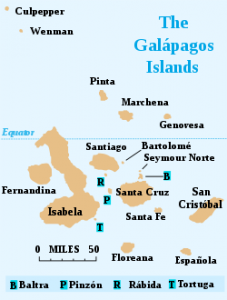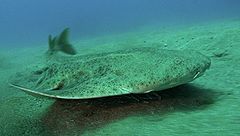Tag Archives: shark fishing
Sharks On Coast Hunted For Soup
Hunters taking advantage of a Japanese delicacy are thought to be the reason that shark stocks have drastically declined off the Gold Coast beaches.
Some astounding numbers revealed yesterday that shark nets had reeled in forty less sharks in the past year, compared to the same time frame in 2001/02.
Trevor Long, director of marine sciences for Sea World, revealed last night that over fishing by thriteen commercial shark hunters in the area had led to the steep decline in the shark population.
It is common knowledge that hunters have been reeling in sharks to harvest their valuable shark fins, which are part of the “shark fin soup” craze sweeping Japan.
In the 2001-02 fiscal year, seventy-eight sharks were reeled in in nets off the Coast, however by 2009-10 that number had dropped to thirty-seven.
This year, between the months of January and September, twenty-five sharks have been reeled in in shark nets and drumlines.
The largest shark reeled in was an impressive three-point-nine meter male greater hammerhead and ten were over two meters long.
Mr Long has commented that the shark populations declining was not the world’s best thing for the health of the world’s oceans.
“If we didn’t have sharks the whole marine ecosystem would become unbalanced – they are the top of the food chain and ensure the survival of the fittest,” Mr Long explained.
“It’s a worrying trend that shark numbers all over the world are dropping.”
The big question is, is it worth making an entire species extinct to get a bowl full of an exotic soup? Some say yes, others say no, however the general consensus is that we should take the poor shark off our dinner menus, before it’s too late.
Brazilian Environmentalists Sue: Shark Finning “An Unacceptable Crime”
A brazilian nonprofit Organization, known as The Environmental Justice Institute which happens to be located in Porto Alegre, has just initiated its fourth lawsuit against the industry of illegal shark finning. This time the trial will be held at the Federal Court in Belem, which is the capital of the Amazonian State of Para.
The case has already seen the confiscation of three and a half tons of shark fins, which amounts to a staggering number of some 40,000 sharks. The Environmental Justice Institute is asking for $120,000,000 in damages, and that is just the start.
“Usually, when people talk of the Amazon, they only think about the forests. Belém do Pará however is one of the main hotspots of finning in Latin America. We know also that the killing of dolphins for shark bait is commonplace in the region, and this too is an unacceptable crime”, explains Director of IJA, Crstiano Pacheco.
This fourth lawsuit is following two other lawsuits started in the Federal Court of Rio Grande, and another one in Belem, which is asking for the princely sum of $900,000,000 from SIGEL do Brasil, one of the biggest players in the fishing industry in the area. While they are based out of Panama, they do have a local office in Brazil, and that is where the case is being based from.
It is a long road for those involved in the case, but with the worldwide ban on shark finning, the plaintiffs are confident they can strike a blow for the sharks, and keep their fins firmly planted on their backs, where they belong.
Sharks of the Bahamas Facing Imminent Danger,
Are sharks going to be able to make it through the 21st century?
This is the question which shark enthusiasts and conservationists the world over are contemplating. Shark populations are declining, and the inhumane practice of “finning” sharks appears to be at an all time high, despite efforts to stop the vile practice. Scientists say that if the sharks disappear, it will have drastic effects on the health of our oceans.
Wolfgang Leander, an avid shark conservationist, is imploring the officials of the Bahamas to put a ban on all shark fishing in the Bahamas, which currently is home to one of the worlds’ most large and diverse shark populations in the world.
The shark enthusiasts and conservationists around the globe want to keep it that way.
Shark enthusiasts and conservationists do have cause for concern. It was recently reported that Sunco, a fishing outfit hailing from Andros, is considering expanding its scope, and selling off shark fins to the Japanese.
This news was not taken lightly, and shark enthusiasts and conservationists, among them Mr. Leander, have made cries that the sharks of the Bahamian waters must be protected.
As of right now, there is no specific law governing the fishing of sharks in the Bahamas, however there is a ban in place which should make it more difficult, as it dictates that the use of long line or gill net fishing is strictly prohibited.
What will befall our sharks? Only time will tell..
Seafood trade in Hong Kong to battle against “cruel” sharking practices
Seafood traders have had enough of all the cruel practices used when hunting sharks and have made an agreement amongst each other to help bring it to an end. The plan is to create a task force, one which would make sure hat sharks are not finned and thrown back into the water.
The Marine Products Association in Hong Kong commented yesterday that a conservation and management committee will be ready to do some actual good about half a year from now. It will include marine experts, nongovernmental organizations and of course the seafood traders who started the whole ball of wax rolling.
Charlie Lim Tin-que, the general secretary of the Marine Products Association, announced the creation of this task force, slash conservation and management committee, at the International Marine Conference yesterday. This conference is widely attended by international marine experts, seafood traders, officers from Agriculture, Fisheries and Conservation Department and the Customs and Excise Department.
Lim took the podium and had a very attentive audience as he explained: “Due to the raised public concern on international finning incidents, in which fishermen are said to be cutting whale sharks’ fins while still alive and then releasing them back into the sea to die a slow and painful death, we decided to set up an advisory committee on banning the trade in endangered species and illegal food importation,”
There you have it, in six months we will have an anti shark-finning task force, and they sound like they mean business. One can only hope this doesn’t escalate into some form of heavily armed vigilantism…
Article on “Shark Finning” Causes Angry Outbursts From Conservationists
Both local and international conservations groups and organizations are banding together to help protect sharks which call the Bahamian waters home, after an article published in Tribune exposed the potential for shark finning practices in Andros.
James Mackey, Chief Executive Officer of Sunco Wholesale Seafood Limited, told the Tribune that the company was thinking of expanding their operation of sea cucumber export in Mastic Point, North Andros, to encompass the exportation of shark fins to eager clients in Hong Kong.
Well, that was obviously a BIG mistake.. The comments he made, and subsequently were published, really created an uproar from different groups and conservationists not only from the Bahamas, but from round the globe. This comes in response to shark populations declining up to 80% around the world, due to the $200 per kilogram delicacy being fished out of our worlds’ oceans.
Interestingly enough, and what caused most of the ruckus, is that the Bahamas is home to the most biologically diverse and pristine shark populations which the Atlantic has to offer. This is due to the fact that the commercial fishers have never really taken an interest in them, that is until now.
However, the outcry comes from the fact that the Bahamas National Trust, in conjunction with the Pew Environment Group which is in the midst of launching a campaign that would hopefully make the fishing and finning of sharks illegal.
Shocking Suprise – Human foot found in shark (Graphic Pictures)
Just as a deep sea fisherman was about to cut away a hook from a wide open mouth of a shark to let it go back on its merry way to the sea, the most surprising thing sprung forth.. A human foot.
“Everything was intact from the knee down,” commented Humphrey Simmons, a Bahamian investment banker, “it was mangled, but there was still flesh on the bone.”
What a morbid way to end such a beautiful day of fishing for Mr. Simmons and his two cohorts, who spent the majority of their morning trying to get away from the sea beasts.
When they finally managed to reel in the curiously heavy and bulging Tiger shark, at the Defence Force’s Coral Harbor base and they got around to sticking a knife in him, to see what was what, a headless body came tumbling out of the freshly opened cavity. The leg which the shark so unceremoniously coughed up appeared to belong to the man, as he too was missing a foot. Upon closer examination of the sharks insides, they indeed found the rest of the man; severed right leg, two severed arms and a torso in two sections.
As Mr Simmons’ ten year old daughter calmly pointed out, the shark had the feast all to himself. There were no signs of a struggle, or fighting from other sharks. The theory going around now is that the unlucky man drowned, and then was scarfed up by the shark.
- The caught shark
- Cut open
- The foot
Tour Operators Who use Chum to Lure Sharks Challenge Law
Some tour operators, who specialize in shark tours, who were accused of chumming off the North Shore have commented they plan to challenge the preposterous law.
However, by challenging this law, they are going to be paying a pretty penny, as court costs are likely to exceed the cost of a fine, as complex issues are going to be raised.
“It’s basically a ridiculous charge and we are going to fight it all the way even to an appeal,” commented, Ken Kuniyuki, an attorney on the case.
Federal investigators supposedly collected hard evidence for almost a year, before charging five employees of two Haleiwa shark tour companies with illegal chumming this past week.
The charge itself is classified as a petty misdemeanor, with a maximum of a $1,000 fine, however an attorney for one of the accused has cried foul, stating his client was treated like a felon by the game warden.
“There’s only a fine involved here and yet (Department of Land and Natural Resources) sent three and four armed people to serve the penal summonses is certainly a waste of resources,” Kuniyuki explained.
The argument is that the tours these companies run is bringing too many sharks into areas used for fishing, and is increasing the chance of sharks attacking a human, however the tour operators are disputing this.
“There’s no scientific proof that these shark tours lure the sharks onto the beach. In fact, the scientific proof is opposite. There’s no legal or factual basis for this law at all. So, we are going to challenge the law as well as the fact that these people are being charged,” Kuniyuki explained.
Costa Rican Boat Caught With Hand in Cookie Jar: Illegally Fishing in the Galapagos
The navy in Ecuador took charge of a fishing boat, of Costa Rican origin dubbed the Rosa I, which had a bountiful cargo of shark meat. This boat was seized in the Galapagos Islands, and an investigation is underway to determine whether the shark came from the archipelago, where shark fishing has been outlawed.
The vessel was halted just shy of 104 nautical miles northwest of Darwin Island with over 70 pieces of shark meat in its hold, Ecuavisa television reported.
This Costa Rican fishing boat had five crewman and a dog on board.
The investigators, from the Ecuadorian Navy, are still trying to determine if in fact the sharks were caught inside or outside a protected marine reserve.
It is a fact that the sharks were reeled in in international waters, however the fishing boat was forced to enter the Galapagos due to some emergency aboard, the captain of the vessel, Wainer Bonilla, explained to Ecuavisa.
“We entered Ecuadorian waters because we were having problems with the main engine,” Bonilla commented.
The crew on the Rosa I scratch out a living by fishing for sharks, which is perfectly acceptable in Costa Rica, Bonilla explained, adding that each portion of the shark meat nets them a cool $60 to $70 in the country.
This is the fourth such fishing boat which has been stopped in the Galapagos this year for illegal fishing.. It doesn’t look good does it?
Nor does it look good, that Costa Rican waters were over fished over the past few years… But only time will tell if the Rosa I and her crew were guilty of any crime.
Experts Backing Law Which Bans Shark Fishing
Conservationists and researchers are lashing out after the 11th fish was killed in BDA waters in the past week.
Are sharks dangerous man eating monsters, an excellent source for protein, or just another example of humanity being cruel and exploiting the oceans?
An 11 foot tiger shark being hacked to bits on a dock in Somerset this week really got the juices flowing in a lot of people.
The children seemed to be at ease, eagerly awaiting their turn to have their photo taken with the beast, however some other concerned citizens have said that the endangered animal had simply been killed for the sport of it.
The owner of the SCUBA firm Blue Water Diving, Michael Burke, has said that he believes that Bermuda should follow Palua and the Maldives example, and protect sharks through legislation.
He explained: “I really don’t see the need to catch a tiger shark. There’s very little use for them. It is not a good eating fish.
“We don’t need to do that anymore. It is a different world we live in.
“Those images of hunters standing with their feet on a lion’s head as some sort of trophy, it is an anachronism.
“Palau has banned shark fishing, we could do the same. We did it for turtles in the 1800s, why not sharks?”
Experts, and the local community seem to be in agreement with him, and will soon have a vote to see about banning the killing of these endangered sharks.
Fishermen Reel In Rare Catch, “Could be last of its kind”
Fishermen have managed to reel in an edangered species of shark off Plymouth and experts are saying that it could be the very last of its kind swimming about the UK waterways. It very well might be. The angel shark is classified as a “critically endangered” species, and has been believed to be extinct in the North Sea, and is very nearly so in other areas of the Mediterranean. It is thought that there are large pockets of them floating around the Canary Islands, and many environmentalist groups are pushing for urgent action to prevent this magnificent species of shark from disappearing off the face of the planet.
The extraordinary catch, identified as an angel shark, was brought ashore to the Barbican Fish Quay market this past Tuesday.
Some resident experts at the Marine Aquarium has said that this is the first time an angel shark has made an appearance in a UK fish market since 1998.
In April of 2008, the UK Government granted the angel shark full protection under the Wildlife and Countryside Act. This means that it is illegal to fish them, trade them, export them, and sell them. However, the animal has yet to be added to the OSPAR Priority List of Threatened and Endangered Species, even though the proposal to get it on there was deemed appropriate the by Study Group on Elasmobranch Fishes, the general motion was quashed and the nomination rejected.
The fisherman who reeled in the shark, got into contact with the aquarium to tell them of the mistake – that they had inadvertently reeled in an angel shark which was about 1.2 meters in length.
An employee of the aquarium, John Crouch, explained: “Globally this species is listed as critically endangered and it was thought to have been fished to extinction in the North Sea in the 1990s.”
“This may well be the last of its species ever to been seen in UK waters.”
He went on to explain that this species of shark are especially vulnerable to accidental fishing, such as bottom trawling, because they generally prefer to make their homes in shallower waters closer to shore and are sometimes caught by any number of fisheries in the area.
He went on to add: “The angel shark is especially vulnerable due to its very long life span, around 35 years, and the fact that they do not mature until they are in their teens.”
“That’s a very long time to evade being caught when each fishable part of the North Sea is trawled seven times each year. It is thought that there are still populations of this species around the North of Africa and off the Canary Islands which is perhaps where this one came from.” John went on to explain that most of the native shark species have seen a recent decline of 90 percent since the 20th century began due to overfishing and hapless fishermen.









